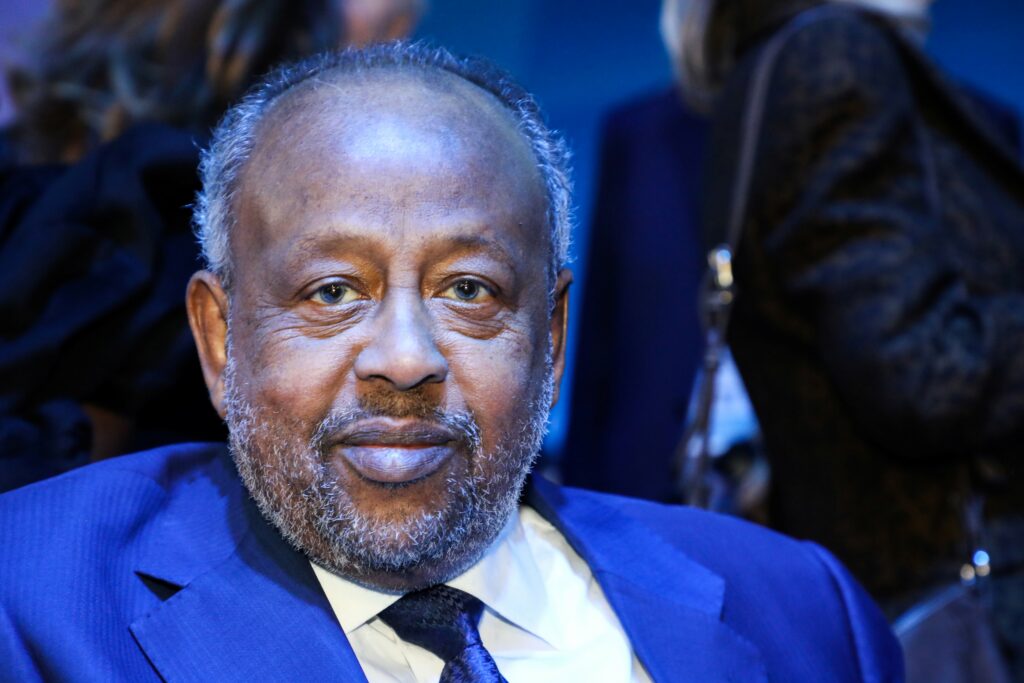Djibouti’s President Ismail Omar Guelleh is a strategic thinker who has used his country’s unique position on the Horn of Africa to lure investors and foreign military powers, while keeping an iron grip on power.The portly 77-year-old polyglot with a salt and pepper beard has been in power since 1999, and most Djiboutians just refer to him by his initials, IOG.He was the handpicked successor to his relative Hassan Gouled Aptidon, the country’s first president after independence from France in 1977.Born in 1947 in neighbouring Ethiopia, where his father was a railway worker, Guelleh returned home as a teenager, later joining the police.He quickly rose to become Aptidon’s chief of staff, a powerful role with control over security forces and the intelligence services that he held for 22 years.In 1999, Aptidon stepped down, passing the torch to Guelleh, who was elected without a struggle.A wily political operator who pledged during an election a decade ago that it was “my last race”, Guelleh is now seeking a sixth term.He speaks six languages: Italian, French, English, Somali, Arabic and Amharic.- No successors -Since his earliest years in power, Guelleh has seized on Djibouti’s unique location on the Red Sea to develop the tiny, arid nation of one million into a reliable international military and maritime hub.The third-smallest country by area on the African mainland, and sandwiched between volatile neighbours, Djibouti embarked on an infrastructure blitz, courting major investment in its quest to become the “Dubai of Africa”.It also hosts military bases for global powers including France, the United States, Japan and China.Guelleh relies on both his sub-clan, the Mamasan, and his extended family to control the levers of power.Rumours of frailty and ill-health have surfaced as his wife, Kadra Mahamoud Haid, has grown increasingly influential — bolstered by relatives in key positions in the administration.Analysts are not surprised by Guelleh’s intention to run again.”No successor seems to be emerging,” Horn of Africa specialist at the Catholic University of Lille, Sonia le Gouriellec, told AFP.And while Guelleh maintains “absolute control over the political system”, the opposition appears “fragmented or exiled”, she said.She believes that thoughts of succession — which would require a figure backed by all sub-clans and groups — are eclipsed by the need to prevent internal instability “at all costs”.- Poverty remains -“There is a total lack of preparation” for the post-IOG period, said a Djiboutian political researcher, who requested anonymity.However, the researcher told AFP that Guelleh had done a “good job in foreign policy”.Influential internationally, one of his closest loyalists, Mahamoud Ali Youssouf, who served as foreign affairs minister for nearly 20 years, was elected to head the African Union Commission in February.Despite his international standing and a plethora of infrastructure projects, largely financed with massive loans from China, many Djiboutians remain in grinding poverty.Guelleh’s government has also been accused by rights groups of cracking down on dissent, limiting free speech and suppressing opposition parties.
